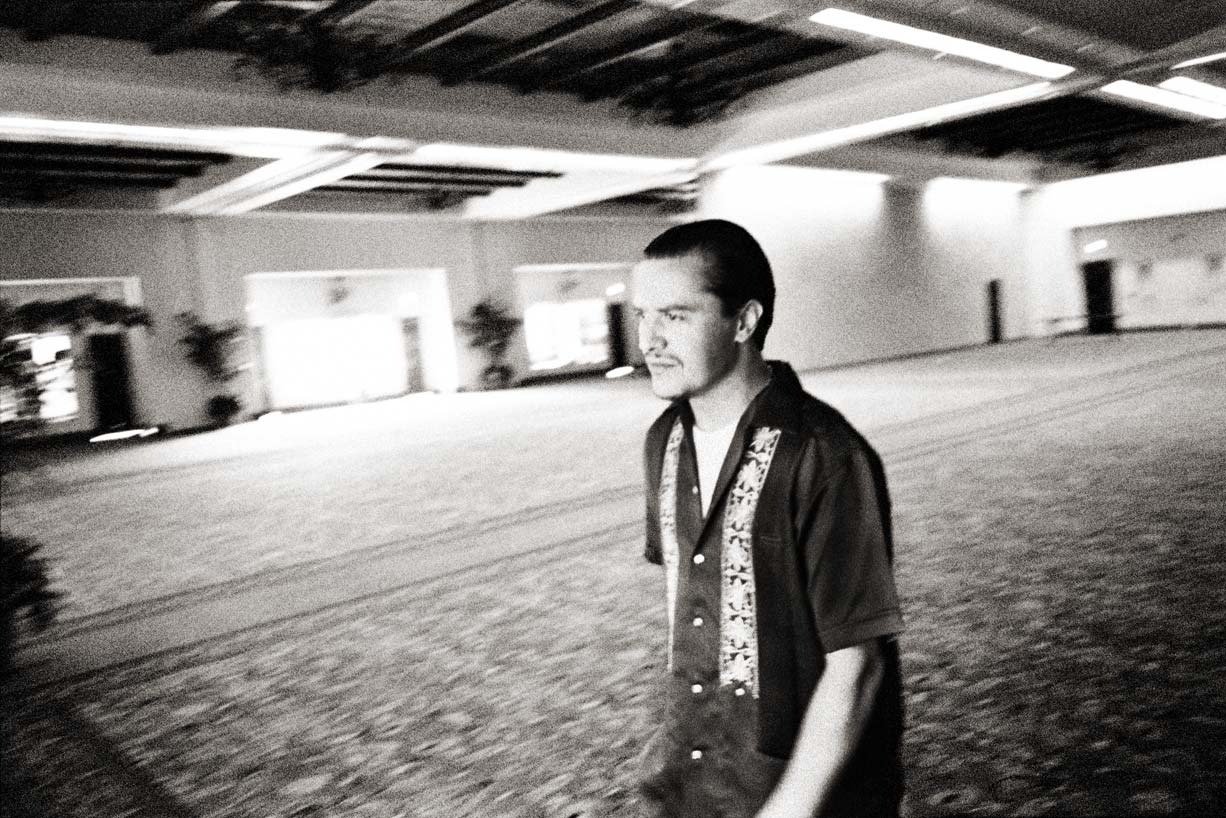To younger generations, the most recognizable track might be the opener, “Il Cielo in Una Stanza.” Written and sung by Gino Paoli, who imagined the song while lying in a brothel, the tune was later used in Goodfellas and sung by Mina Mazzini, one of Italy’s most famous pop singers of the 1960s and ’70s.
Patton’s version is just as centered on swelling strings and a dynamic vocal range, but his includes an atmospheric intro with vocal additions (“la las” panned left and right) as well as a buzzing guitar riff, flute accents, and rain sound effects.
Though Patton and crew used the live performances to tease out that type of elongated, augmented introduction, the Mondo Cane album is restrained in its alterations. The most deviating sounds might belong to “Urlo Negro” and “Senza Fine.” The first, belonging to a ‘60s garage-rock group called The Blackmen, is the only to feature Patton screaming his ass off. The latter, another offering by Paoli, builds from a sleepy, romantic ballad to a jazzy crescendo to close out the album.
Of course, a pair of Morricone-related highlights should be mentioned as well. The film-scoring guru is recognized with one of his lesser-known pop numbers (by US standards), the theme for 1968 film Danger: Diabolik. Featuring the album’s finest falsettos, “Deep Down” is a swoon-inducing powerhouse, as catchy and as direct as its original — with parallel aesthetics, down to the nearly identical guitar distortion.
But the following track, “Quello Que Conta,” might be the album’s greatest treasure. Originally from the 1962 film La Cuccagna, the somber track first touched listeners with the tender pipes of Luigi Tenco, a stirring classical guitar, and an arrangement by Morricone. Patton’s rendition leads with a distant, swelling storm of brass and cymbals, with trumpeter Roy Paci adding a Western-tinged solo. The rest flows much like the original, but orchestral accents and an operatic backing vocalist make it even more alluring.
“We’re just sniffing at the surface, really, of all the stuff that was going on at that time,” Patton says. “If I were to dedicate myself to this particular thing, Italian pop music from the ‘60s, I could go on and on and on. It’s a vortex; believe me. But you can’t get frustrated. It’s exciting, like, ‘Oh, shit—I missed that!’ It makes you want to know more and explore more.”
Between the second Mondo Cane installment and another tour, Patton isn’t done exploring. His restless nature won’t allow for that. And like usual, he and Ipecac partner Greg Werckman have a full schedule of upcoming releases, including a soundtrack by Daniele Luppi and a new album by experimental-rock studio project The Books of Knots.
And after the possibility of even more tour dates from the reunited Faith No More, Patton’s commitments, to be finished in no particular order, include a film score for the adaptation of The Solitude of Prime Numbers, an electronic Fantômas album, another Tomahawk release, the Crudo collaboration with Dan the Automator, and another Moonchild disc with the Zorn crew.
Though each release should sound nothing like the next, each will be characteristic of a catalog that has flourished with diversity. And with a body of work that even diehard fans have trouble chronicling, it won’t be surprising for future projects to sneak by, unheard — ironic for such an ever-present voice.


why do you call yourself mike and not brent? your an ass!